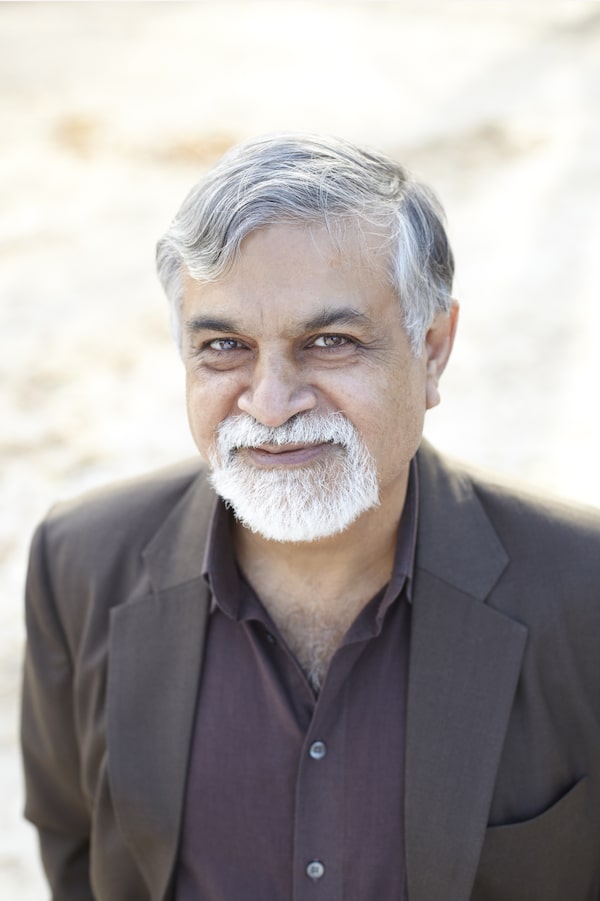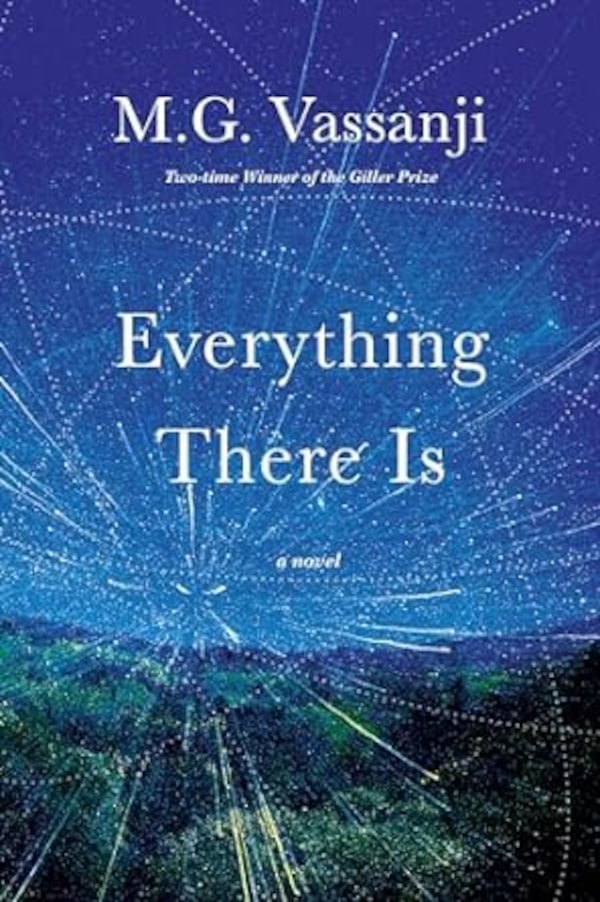
M.G. Vassanji.Handout
- Title: Everything There Is
- Author: M.G. Vassanji
- Genre: Fiction
- Publisher: Penguin Random House
- Pages: 336
A biography masquerading as a novel dipping into the realm of speculative fiction is a hat trick few authors can pull off. Yet Giller and Governor-General Award winner M.G. Vassanji manages to do just that. This is a tale set in the high-octane world of theoretical physics, and academic research one-upmanship. It is also the portrait of a man. Vassanji, who has a PhD in nuclear physics himself, engages with the life of his fictional Nobel laureate – a world-class physicist and a devoutly religious man with a scandalous personal life – with astonishing aplomb. His protagonist, Nurul Islam, is in fact based on the life of the late Dr. Abdus Salam.
Books we're reading and loving this week: Globe staffers and readers share their book picks
For the nervous reader who has little familiarity with theoretical physics, the unvarnished prose and hypnotic intensity with how this narrative unfurls shifting points of view and embracing varying worlds makes for an enthralling primer for novel writing itself.
Most of Vassanji’s work is set in Africa and India, but here he delves into Pakistan’s atomic energy politics of the sixties and the religious persecution of the Shirazi sect of Islam to serve as the scaffolding of this compassionate and lively work.
The novel celebrates the indomitable will of Nurul Islam, a math prodigy from a village school in Pakistan who wins a scholarship to Cambridge University, where he gains a PhD and an international reputation in his field. There are soulful vignettes of his personal life and intimate details of a long-standing arranged marriage to a relative. Nurul settles in England, adjusting to Western values and social norms, which leads to a love affair with a graduate student during a visit to Harvard as a guest lecturer.
Everything There Is begins with the protagonist smarting under the tedious scrutiny of U.S. immigration as he arrives for his lecture at Harvard. His companion, a fellow physicist, shrugs away the bias of Western societies by saying, “I told them you were perhaps one of the world’s greatest physicists,” and is met with Nurul’s comic rejoinder: “Well, thank you, even if you did not mean it.”

Handout
Here is a physicist celebrated globally for his work in unifying four known fundamental forces. Two had previously been unified and Nurul, with his American counterpart Abe Rosenfeld, presented the Lesser Unification Theory to embrace the remaining two. For Nurul, the single unifying force also functions as a metaphor for religion. A new and mysterious force – the result of previous work called the Higgs boson, referred to as the God Particle for its promise of being able to unify and embrace the remaining two forces – became his life’s work. The God he worshipped devotedly had found a home in the theories of physics. Religion and physics were apart, but could exist side-by-side. This is what author Vassanji said sparked his fascination with the life of Salam and inspired him to write the novel.
Nurul tours and lectures at at various prestigious venues, collecting chestfuls of medals and other awards of excellence along the way, in the belief that physics had escaped being colonized and the world listened. The Nobel lecture he presents combines contributions of the West and East.
Where this novel reveals its underbelly is the portrait of a marriage. Nurul lives with his family in London and is a loving father to three children. The author attached a suffix to the given name of his wife, Sakina, which means “lady,” something which contradicts her modest family background. While her husband learns how to dress and even talk like an Englishman, her attempts to adapt are clumsy and her appearance is often embarrassing to her husband. Her strength lies in upholding traditional values. She is indispensable to Nurul, brimming with domestic virtues until a startling revelation rears its head. Her innocent yet secretive forays with one of Nurul’s colleagues are out of character. Her acceptance of safeguarding a box the colleague hands over to her is a further clue at some unexplored character traits. Would a woman who basks in the glow of her husband’s academic fame allow her frustrations to find release outside her marriage? Given the time it would be unlikely.
The novel fleshes her out as a proud and generous woman, particularly when her husband confesses his infidelity. She is angry and wrestles with the concept of a rival he wants to marry. To do so, he requires her permission. She consents after a few days, stating that this is how great her love is for him. She then receives the rival who calls on her. She serves tea and biscuits and permits her to see her husband’s study, in her efforts to live up to the “lady” part of her given name. Could it have been the sting of rejection that makes her subsequently call the daughter of the now-dead colleague and and return the box? Inadvertently, a Pandora’s box is opened and a series of damaging statements attacking Nurul Islam’s reputation as a physicist appear in the press. This episode in the novel is like setting a match to tinder. It carries a shock value that suggests she she is attempting to tamper with the protagonist’s integrity.
Joining those who have envied his success in the West, the Pakistani government has declared Dr. Abdus Salam to be a non-believer and refuses to honour him in any public fashion. His grave is often desecrated. There are no stamps or public edifices which bear his image in his country of birth. Yet he is commemorated by the Abdus Salam Library at Imperial College in London and the Abdus Salam International Centre of Theoretical Physics in Trieste, Italy. A brilliant documentary made by an Indian has simply vanished. Vassanji clearly intends to reverse these wrongs, and succeeds.
It takes the respect and tenderness of a gifted novelist like Vassanji to transform the world and spirit of this underdog of theoretical physics into a page-turner of a novel.
Nazneen Sheikh is a writer of fiction and non-fiction. Her most recent novel is The Place of Shining Light (Anansi).